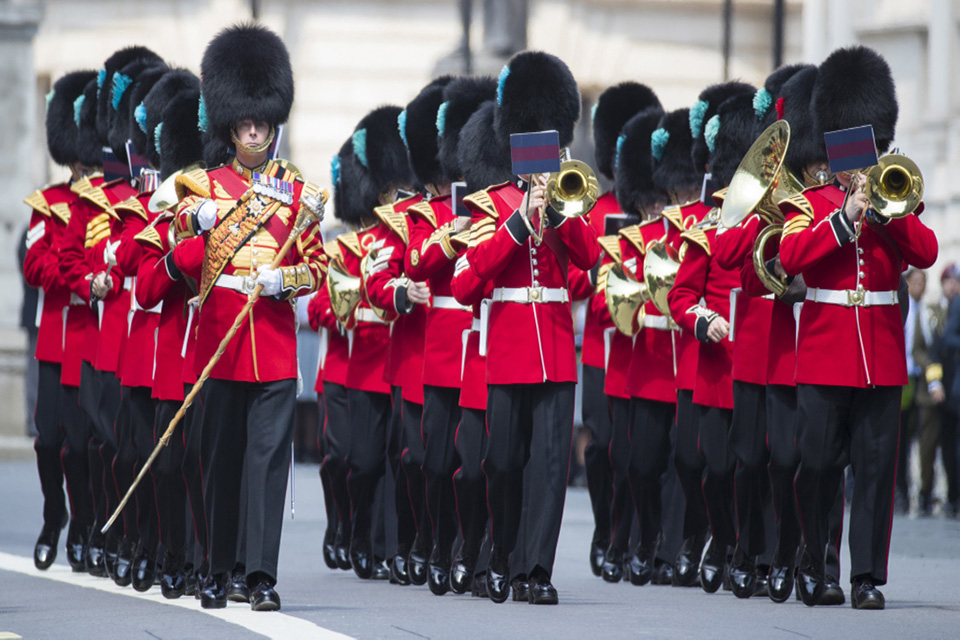News story: Prime Minister praises Royal Air Force at Centenary Reception
The Prime Minister hosted the Defence Secretary, three Service Chiefs and current and former service personnel at Downing Street today to recognise the dedication of those who have served in the RAF over the last 100 years.
More than 150 guests attended the event, including personnel from the Navy and Army, in recognition of the contribution that all three services made in the formation of the RAF in 1918. Attendees were greeted with a ceremonial welcome guard at the entrance of Number 10, while inside the RAF Salon Orchestra played music from across the three services.
Commemorative items were displayed during the event, including memorabilia from World War One, marking the centenary of the Great War’s conclusion this year. Guests also passed by a Red Arrow Hawk facsimile, noting the key role played in national events by the RAF Aerobatic team since their formation.
The Chief of the Air Staff, Air Chief Marshal Sir Stephen Hillier, introduced the Prime Minister and Defence Secretary, Gavin Williamson MP to cadets, new recruits and veterans, including the last surviving female pilot from World War Two, 101 year-old Mary Ellis, who were thanked for their contributions to the service at home and abroad.
Addressing the audience, Prime Minister Theresa May said:
For one hundred years, the RAF has proved it is not only the first independent air force in the world, but the finest. It stands shoulder-to-shoulder with the Royal Navy, the Royal Marines and the Army in defending our nation and promoting our values, and I am delighted that members of each Service are here this evening.
Chief of the Air Staff Air Chief Marshal Sir Stephen Hillier said:
It is an enormous privilege to be in Downing Street to commemorate the rich heritage and the legacy which the RAF of today is proud to inherit. We celebrate the successes of today’s Force – still young and diverse, at the cutting edge of technology and innovation, attracting and inspiring people of outstanding talent who are the future of our Service.
Defence Secretary Gavin Williamson said:
From the Battle of Britain to countering Daesh in Iraq and Syria, the RAF has played a proud and vital role in keeping Britain safe for a century. It is an honour to meet veterans who have sacrificed so much for our country, and to meet some of the RAF’s inspired new generation who will continue to keep watch and protect our nation over the next 100 years.


